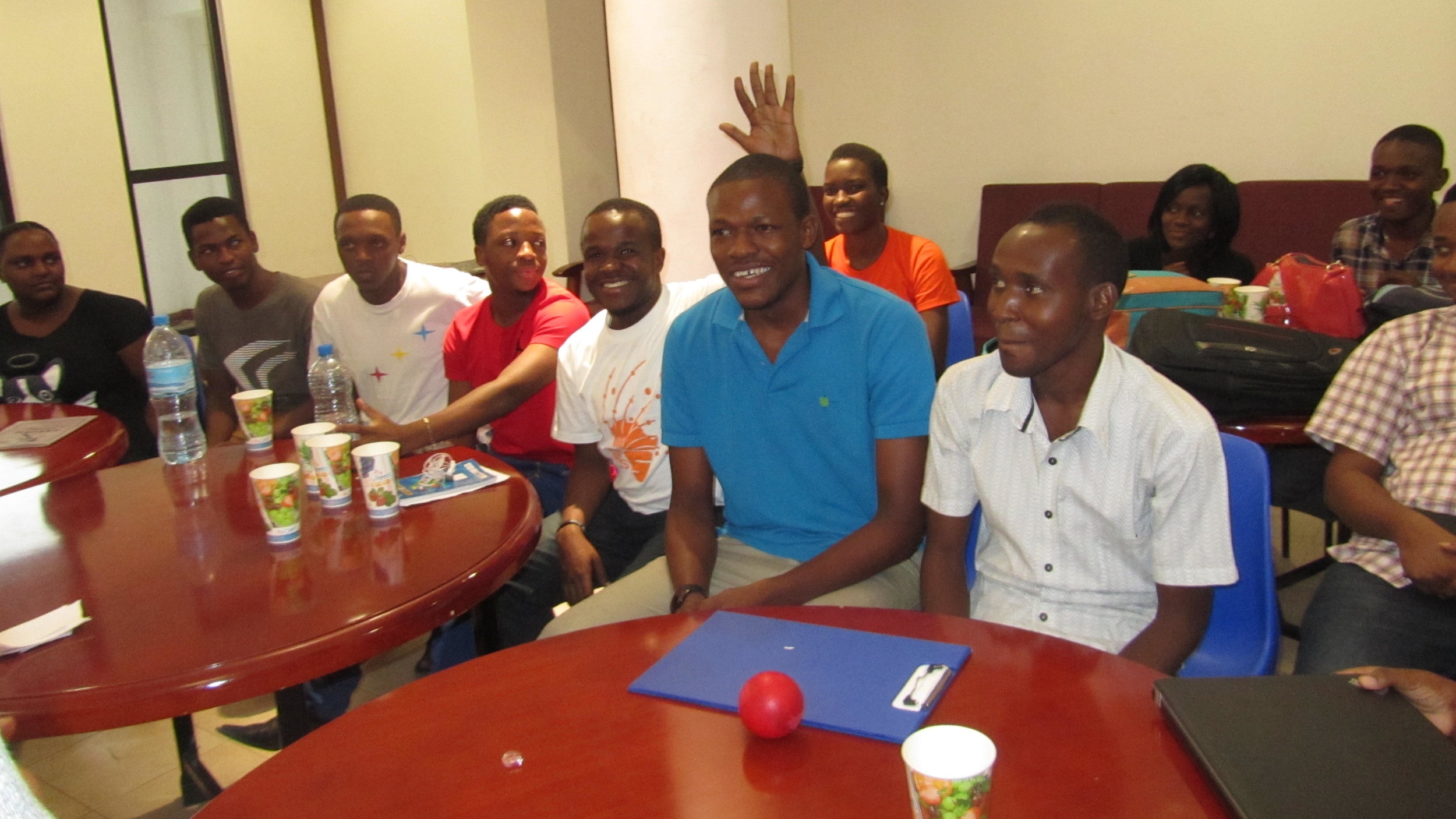Finding Our Rhythm
By Jeremy Boles
Another amazing week in an amazing country working with amazing people.
This week we got firmly into the rhythm of the workshops, further developed our relationships with our student colleagues, started two projects for our client RISE, grew our network amongst Tanzanian businesses, and experienced more of this wonderful country.
Workshops Kick-Off
Our student consulting workshops last week had been very intense and less organised than we would have liked! Our original plan for the trip was to run regular 1-hour workshops every second day with approx 10 students per session, however thanks to unprecedented demand and support from students and faculty at the university, this quickly turned into three 2-hour workshops per day with up to 20+ students attending each session. It was a little chaotic, but we were delighted to see such a level of enthusiasm!
Naturally, the focus for this week centred on building structure and finding our rhythm in workshops whilst working with the local students. Getting up to speed, our workloads have now become more defined and we have better delegated various elements of our workshops within the team to better conserve our energy levels!
Our workshop sessions with the students of Dar Es Salaam provided some fantastic learning in delivering educational or informative seminars. One of the most successful tools that we've discovered is 'The Red Ball', a wonderful tool to encourage and sustain interaction during the workshops.
The rules are simple.
- If The Red Ball is thrown at you, you must speak. This can be to share your opinion on the current discussion, simply answer a just asked question, or ask a question yourself and throw the ball on to someone else.
- If you do not catch the ball when thrown to you, you must stand up in a funny position while talking. The chosen pose got more complicated each workshop, starting with simply standing on one leg.
Throwing The Red Ball around encourages everyone to continue actively listening and allows us to gauge the value and understanding of our content throughout the session. The biggest benefit of this idea is that it changes the atmosphere in the room, creating and a fun and open dynamic far from feeling like the classroom.
As great believers in the value of tangible experience and learning by doing, 50% of our time in workshops is dedicated to working directly on projects for our client, RISE. As part of Project Seed, we have worked with the client to set out two distinct projects with the client. Firstly, to carry out an analysis of the clients direct and indirect competitors, and secondly, to develop a geographic growth strategy. The projects are on a pretty tight timeline too as we are limited, not just by our length of time in the country, but also by the exams that the students have to start during our last week here. As well as that, there are several bank holidays making it difficult to complete all the work and find a suitable time for the final deliverables. With that pressure we have broken down the projects as much as we can and assigned responsibility for different parts to all the students working on the project. Our timeline leaves very little room for error, a cause of concern for us and the entire team (our first ISCG project was 8 weeks in duration as opposed to 3, and most of the students training was completed before starting it).
Building a Client Network
Another objective for Project Seed is not only to complete a successful client project with RISE and the students of Dar Es Salaam but to enable the new Tanzanian Student Consulting Group we are forming there to build a pool of potential future client projects when we leave. Similar to our own ambitions back in Ireland, we are eager to make TSCG recognised amongst graduate employers so that TSCG membership is known by recruiters as an extremely valuable experience. In this endeavour, our most noticeable interaction we have had with a local business was a meeting with the Managing Director of CSI Electrical.
The company employs over 200 people and wants TSCG's help in devising a strategy to expand into two new lines of business. As we discussed what we are doing and the two proposed projects he was very quick to buy into the idea of TSCG; it is a great opportunity for both his business and the students. The projects are very exciting and will teach the consultants a lot, as they do to CSI Electrical. Perhaps through TSCG's work it will employ over 400 people in the not-too-distant-future.
Cultural Interaction
While in the country we have been eager to experience local culture and partake in some tourist activities. Last weekend we went on a trip to Mikumi National Park where we got to see lots of exotic animals. However, there was no switching us off from our mission of setting up a sustainable student consulting group to continue long after we leave; while on safari we recruited two more potential clients (I never would have expected to meet the leader of an international insurance company while trying to see lions).
All these interactions are leaving us confident and excited about the future prospects of Tanzanian Student Consulting Group.


